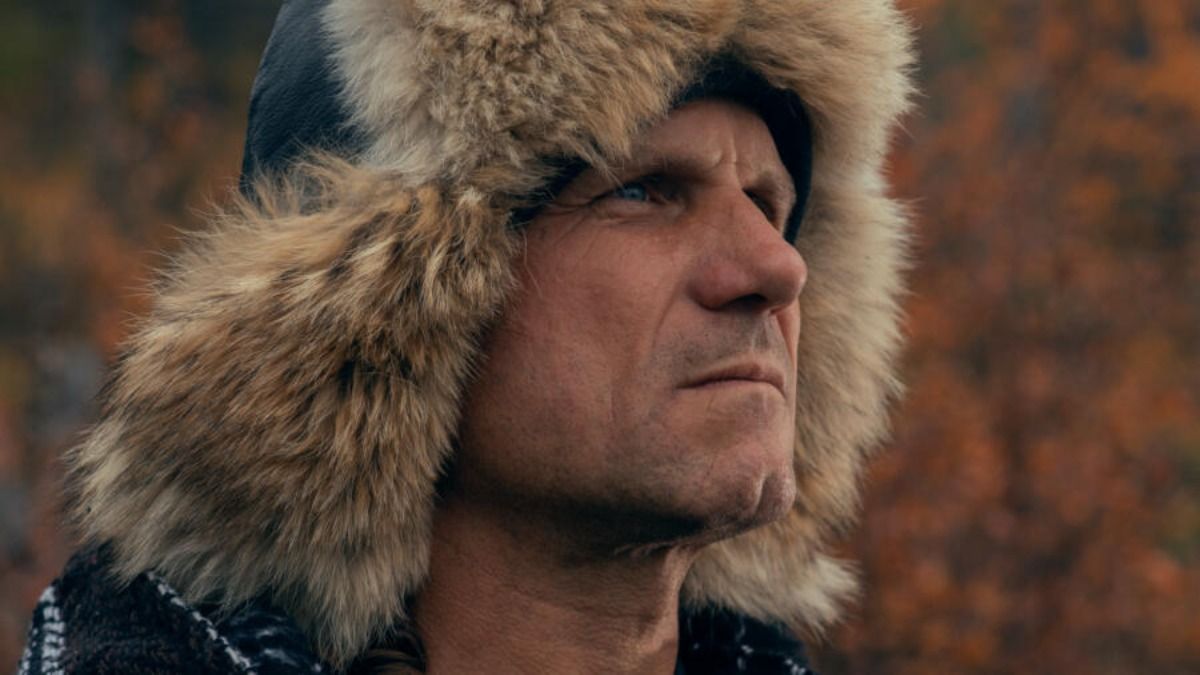Unveiling The Secrets: Longest Someone Has Lasted On Alone
Survival is an art that requires immense skill, resilience, and determination. When we talk about the longest someone has lasted on alone, we're delving into the extraordinary stories of individuals who have pushed the boundaries of human endurance. These tales are not just about survival; they're about the triumph of the human spirit in the face of adversity.
From castaways stranded on remote islands to adventurers exploring the wilderness, these individuals have demonstrated the incredible capacity of humans to adapt and thrive in the harshest conditions. Their stories serve as a testament to the power of ingenuity, resourcefulness, and sheer willpower.
In this article, we'll explore the most remarkable cases of survival, analyze the factors that contributed to their success, and uncover the lessons we can learn from their experiences. Whether you're a survival enthusiast or simply curious about human endurance, this article will provide valuable insights into the longest someone has lasted on alone.
Read also:Brock Purdy The Rising Star Of American Football
Table of Contents
- Biography of Key Survivors
- Historical Context of Survival
- The Longest Someone Has Lasted on Alone
- Environmental Factors in Survival
- Psychological Impact of Solitude
- Skills Needed for Long-Term Survival
- Modern-Day Survival Techniques
- Common Challenges Faced by Survivors
- Lessons Learned from Survival Stories
- Future Trends in Survival
Biography of Key Survivors
Throughout history, several individuals have become famous for their extraordinary survival stories. Below, we present a brief biography of some of the most notable survivors.
Biographical Data
| Name | Years Survived Alone | Location | Occupation |
|---|---|---|---|
| Álvaro Fernández León | 13 years | Galápagos Islands | Fisherman |
| Christopher McCandless | 113 days | Alaska Wilderness | Adventurer |
| Robinson Crusoe (Fictional) | 28 years | Deserted Island | Sailor |
Each of these individuals faced unique challenges and overcame them with remarkable resilience. Their stories continue to inspire millions around the world.
Historical Context of Survival
The concept of survival has been a central theme in human history. From ancient times to the present day, humans have faced various threats to their existence, ranging from natural disasters to hostile environments. Understanding the historical context of survival provides valuable insights into the strategies and techniques used by our ancestors.
Key Historical Events
- The Ice Age: Early humans survived extreme cold by developing tools and clothing made from animal hides.
- The Great Famine: During the 14th century, Europeans faced widespread starvation, leading to innovations in agriculture and food preservation.
- Exploration Era: Mariners like Christopher Columbus and Ferdinand Magellan relied on navigation skills and resourcefulness to survive long voyages.
These historical events highlight the adaptability and resilience of humans in the face of adversity.
The Longest Someone Has Lasted on Alone
One of the most fascinating aspects of survival is the length of time individuals have managed to endure on their own. The record for the longest someone has lasted on alone belongs to **Álvaro Fernández León**, a Mexican fisherman who survived for 13 years on a remote island in the Galápagos archipelago.
Factors Contributing to Success
Several factors contributed to Álvaro's remarkable survival:
Read also:Malcolm In The Middle Dewey The Ultimate Guide To Deweyrsquos Character Personality And Impact
- Resourcefulness: He learned to fish and gather food from the island's natural resources.
- Shelter Construction: Álvaro built a rudimentary shelter using materials found on the island.
- Mental Resilience: His ability to maintain a positive mindset despite isolation was crucial to his survival.
Álvaro's story serves as a powerful reminder of the human capacity to adapt and thrive in challenging circumstances.
Environmental Factors in Survival
The environment plays a critical role in determining the success of survival efforts. Factors such as climate, terrain, and availability of resources can significantly impact an individual's ability to endure alone.
Impact of Climate
Cold climates require individuals to focus on maintaining body heat, while hot climates demand strategies for staying cool and hydrated. For example:
- Arctic Regions: Survivors must prioritize insulation and fire-making to stay warm.
- Tropical Regions: Access to fresh water and protection from the sun are essential for survival.
Understanding the specific demands of the environment is key to successful long-term survival.
Psychological Impact of Solitude
Solitude can have profound effects on an individual's mental health. Prolonged isolation often leads to feelings of loneliness, depression, and anxiety. However, some survivors have reported positive psychological outcomes, such as increased self-awareness and personal growth.
Strategies for Maintaining Mental Health
- Journaling: Writing down thoughts and experiences can help process emotions and maintain mental clarity.
- Routine: Establishing a daily routine provides structure and a sense of normalcy.
- Connection with Nature: Interacting with the natural environment can foster a sense of purpose and connection.
These strategies have proven effective for many survivors in maintaining their mental well-being.
Skills Needed for Long-Term Survival
Surviving alone for an extended period requires a diverse set of skills. Mastery of these skills can significantly increase the chances of success.
Essential Survival Skills
- Fire-Making: Fire provides warmth, light, and the ability to cook food.
- Shelter Construction: A secure shelter protects against the elements and potential threats.
- Food Gathering: Knowledge of edible plants and hunting techniques ensures a steady food supply.
Developing these skills takes time and practice, but they are essential for anyone serious about long-term survival.
Modern-Day Survival Techniques
Advances in technology have revolutionized the field of survival. Modern tools and techniques offer new opportunities for individuals to survive in challenging environments.
Technological Innovations
- Solar-Powered Devices: Provide renewable energy for charging electronics and powering essential equipment.
- Water Purification Systems: Ensure access to clean drinking water in any environment.
- GPS Technology: Facilitates navigation and communication with the outside world.
While traditional skills remain important, integrating modern technology can enhance survival efforts.
Common Challenges Faced by Survivors
Despite their best efforts, survivors often face numerous challenges that test their limits. Understanding these challenges can help prepare individuals for potential obstacles.
Physical Challenges
- Injuries: Accidents and injuries can severely impact survival efforts.
- Illness: Lack of medical resources makes treating illnesses particularly difficult.
- Exhaustion: Prolonged physical exertion can lead to fatigue and decreased performance.
Preparing for these challenges requires careful planning and resource management.
Lessons Learned from Survival Stories
The stories of survivors offer valuable lessons that can be applied to various aspects of life. By studying these experiences, we can gain insights into human resilience and adaptability.
Key Takeaways
- Resourcefulness: Making the most of available resources is essential for success.
- Resilience: Mental toughness and perseverance are critical in overcoming adversity.
- Preparation: Proper planning and preparation can significantly increase the chances of survival.
These lessons remind us of the incredible potential of the human spirit to overcome even the most daunting challenges.
Future Trends in Survival
As technology continues to evolve, new trends in survival are emerging. These trends offer exciting possibilities for individuals interested in long-term survival.
Emerging Technologies
- Drones: Used for reconnaissance and delivering supplies to remote areas.
- Wearable Technology: Monitors vital signs and provides real-time health data.
- Sustainable Energy Solutions: Renewable energy sources reduce reliance on traditional fuels.
These advancements promise to transform the field of survival, making it more accessible and effective for future generations.
Conclusion
The longest someone has lasted on alone is a testament to the incredible resilience and adaptability of the human spirit. From historical accounts to modern-day innovations, survival stories offer valuable lessons that can be applied to various aspects of life. By studying these experiences, we can better understand the factors that contribute to successful long-term survival.
We invite you to share your thoughts and experiences in the comments below. Your feedback is invaluable in helping us improve and expand our content. Additionally, feel free to explore other articles on our site for more insights into survival and related topics. Together, we can continue to learn and grow from the remarkable stories of human endurance.


